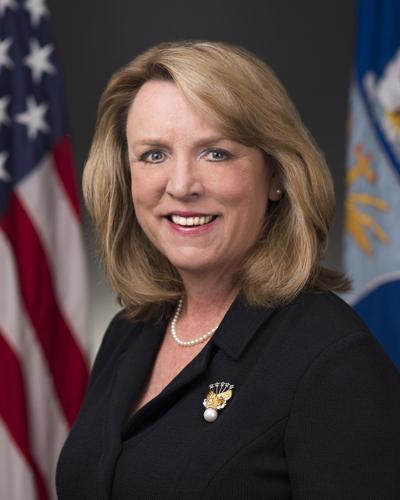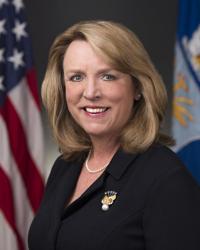For three years I was honored to serve as secretary of the Air Force, and in that position, I witnessed the daily, significant demands placed on the Secretary of Defense — everything from White House and head of state meetings to budget meetings to life and death decisions for troops overseas.
Based on my experience and observations, I firmly believe that retired Army Gen. Lloyd Austin has the breadth of skills and the depth of experience needed for this critical leadership position.
After leading U.S. soldiers at every level from platoon to corps and serving in key staff posts with global responsibilities, Austin served as director of the Joint Staff. In that post, he coordinated everything from routine issues to complex strategic decisions by the chairman and the Joint Chiefs of Staff. He was privy to every U.S. military decision across every region of the world. Moreover, as Vice Chief of Staff of the Army, Austin managed the hard, unglamorous, but essential tasks including budgeting and acquisition.
My time as Secretary of the Air Force coincided with Austin’s service as commander of Central Command (CENTCOM). He not only led U.S. troops in Iraq and Afghanistan, he also worked closely with other departments and agencies and senior Allied officials. In our time together on the Pentagon Senior Leadership Council, I was consistently impressed with his ability to cut through bureaucratic red tape and interservice rivalry to get things done.
When President Barack Obama wanted to reduce our military presence in Iraq, it was General Austin who led the effort. He played a crucial role in bringing 150,000 American troops home from Iraq. Accomplishing that took more than just the skill and strategy of an experienced soldier. It took diplomacy and building relationships with our Iraqi counterparts and with our partners in the region.
And when the Islamic State emerged as a terrorist threat in Iraq and Syria, endangering the security of Americans and our allies, Austin served as the chief military architect of the effort to defeat ISIS.
He helped to build a coalition of partners and allies from more than 70 countries who worked together to defeat a common enemy.
Throughout his career, Austin shunned the spotlight for himself. Instead, he focused attention on the men and women carrying out the missions at hand. I can personally attest that while serving in these positions, Austin spoke truth to power.
He did so on numerous occasions without public rhetoric or orchestrated press leaks. Senior civilian leaders are always confident that he will tell them what they need to hear.
Furthermore, we can all be fully confident that once the nation’s elected civilians make a decision, Austin will faithfully execute their orders, just as he did while in uniform.
The National Security Act of 1947 stipulated that Secretaries of Defense must have been out of uniform for 10 years (later reduced to seven years) prior to taking office.
This stipulation reflected a concern that recently retired officers would reflect their particular service’s particularly priorities. However, Austin is unlike the vast majority of general officers of 1947; he has been assigned to Joint and Allied duties throughout his career. Perhaps most important, Austin’s professional success has been earned in an era of constant change and unprecedented challenges.
Entering the Army during the Cold War, on his watch Austin saw the fall of the Iron Curtain, the breakup of the Soviet Union, ethnic warfare in the Balkans, humanitarian intervention missions, two wars in Iraq and one in Afghanistan, new forms of terrorism, and the return of Great Power competition.
Through all this turmoil and change, Austin has proven ready to meet each new challenge with skill, integrity, and quiet professionalism.
When Austin’s background is contrasted with previous secretaries of defense, he has broader experience than many. This is why previous Secretaries of Defense William Cohen and Robert Gates have publicly and forcefully endorsed General Austin. Furthermore, President-elect Joe Biden knows and trusts Austin. The trust and mutual respect that characterizes their relationship is one more reason to support his nomination.
The U.S. has been at war in Afghanistan for almost 20 years. Internal turmoil has rocked government organizations and American society.
American allies are uneasy while competitors have become bolder. Rebuilding trust confidence within the Department of Defense, and between the Department of Defense and the rest of the U.S. Government, is a vital task.
Lloyd Austin has the skills, the experience, and relationships to be the next Secretary of Defense. Based on my observations and our service together, he will be a great one. The Senate should confirm his nomination quickly.
Deborah Lee James was the 23rd secretary of the Air Force and served from 2013-2017.




 Your Privacy Choices
Your Privacy Choices